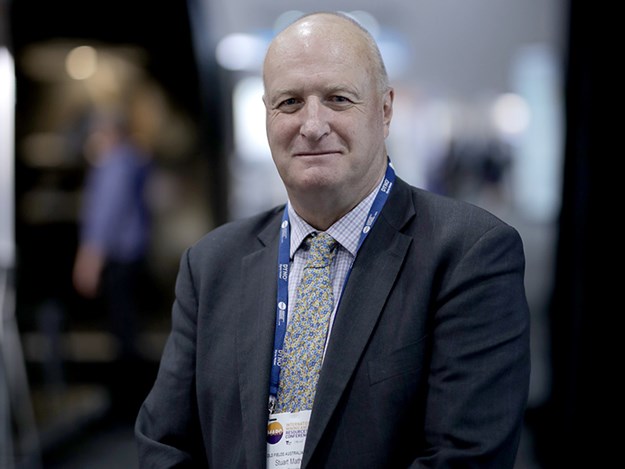Gold Fields looks towards increasing sustainability
 |
|
Stuart Mathews, executive vice president of Gold Fields’ Australasia operations
|
Lowering the cost of energy and increasing exploration are key to maintaining Australia’s standing as the jewel in Gold Fields’ crown according to Stuart Mathews, executive vice president of the company’s Australasia operations.<
The company’s three mines in Western Australia – Granny Smith, Agnew and St Ives – produce 43 per cent of the group’s gold production and 42 per cent of net cash flow, with the addition of the new Gruyere mine set to push this proportion higher.
“Going forward we will be aiming for around a 50 per cent contribution,” Mathews says.
Gold Fields says it is committed to maintaining its $85–100 million per year exploration spend in Australia. Specifically, that budget is being put towards continued in-mine growth at Granny Smith, development at Agnew (Waroonga and New Holland) as well as the emerging Redeemer complex at the mine, and growth at the Invincible deposit at St Ives.
Sustainability is not all about operations, suggested Mathews, with the company focusing heavily on shifting the dial on energy use – especially in Australia.
“Gold Fields has a strong emphasis on sustainability as a company. We don’t spend a lot of time talking about operations given that we have proven consistency of delivery over the long-term. Instead, we look at ways to deliver operational and financial gains that are relevant to society and have positive impact on our sustainability goals,” he says.
He suggests that the business case for renewables is gaining relevance for operators both big and small, with energy comprising around 25 per cent of total costs for most mining operations.
At Agnew alone, the company has invested in five wind turbines producing 18MW and 10,000 solar panels that produce 4MW. The system is fed into a 13MW/4MWhr batter unit underpinned by a 16MW gas plant.
“If we don’t do anything about climate change and energy security, people won’t want to work with us, and investors will choose not to invest in us.
“Ultimately, we have a responsibility to operate in a responsible and sustainable way – globally and locally. It’s equally important that we look at ways to positively contribute to community goals as well as meet global aspirations.”

